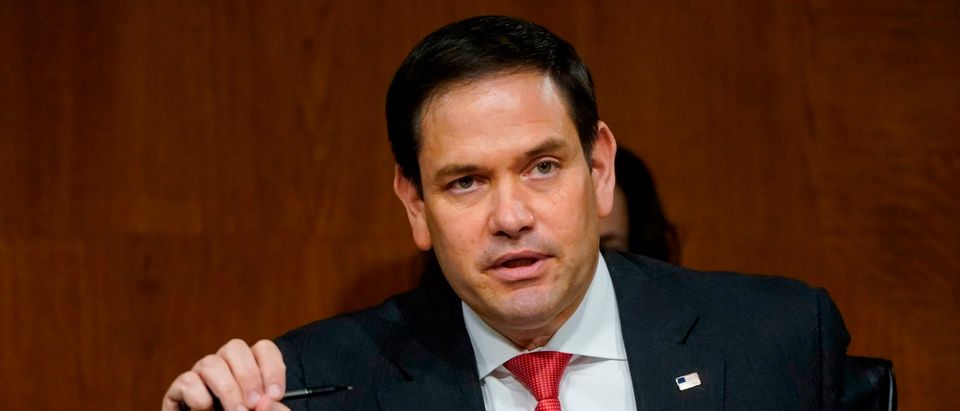Many conservatives argue that the American Rescue Plan (ARP) hindered the post-pandemic economic recovery by overspending on unemployment and contributing to inflation.
The $1.9 trillion package included a massive expansion of unemployment benefits, which encouraged many workers to stay home. It may also contribute to moderate levels of inflation, which happens when new cash rapidly enters the economy. Common-good conservatives, who are less skeptical of government spending than other Republicans, are proposing more targeted legislation that they argue would not have as many negative effects as the ARP.
Many congressional Republicans and economists cite the ARP’s $300 unemployment benefit extension as a key cause of April’s poor jobs numbers. As a result, 15 states have announced that they will not offer the expanded unemployment to their residents, and more are expected to follow suit. Even some Democrats have tacitly admitted that expansive unemployment benefits may discourage work.
Manhattan Institute economist Brian Riedl told the Daily Caller that the weak jobs numbers were predictable.
“The $300 federal unemployment bonus drives unemployment benefits to $687 per week, which is approximately $20 per hour, and more than nearly half of what unemployed workers were making in their previous jobs,” Riedl said. “So essentially, millions of workers are making more on unemployment benefits than they would be making at their jobs.”
Riedl suggested that the increased benefits are not the only cause of the weak jobs numbers, but that they are a contributor.
“Economic literature has suggested for decades that overly generous unemployment benefits drive up unemployment rates and delay the getting of new jobs. We’ll have a chance to test that theory with the states that are going to reject the unemployment benefits. I suspect that the economic consensus is correct, and we will see more job gains in the states that are not paying as large of an unemployment bonus. We’ll find out though,” Riedl said.
The American Rescue Plan “was not about stimulus at all. It was about Democratic handouts to favored constituencies and vote-buying. Of course it was too big,” Riedl added.
Republican Florida Sen. Marco Rubio concurs with Riedl on the American Rescue Plan’s problems. The ARP “empowers teachers’ unions and other special interests, recreates a failed welfare system, and keeps Americans detached from the workforce,” he wrote in a March 1 Medium post.
If federal money on top of the basic unemployment benefit means you will make more than from an available job what does #commonsensewisdom tell you is the logical decision for people to make?
And right now this is set to continue for another 3 months.https://t.co/0eW9QVhCsz
— Marco Rubio (@marcorubio) May 14, 2021
Rubio often emphasizes the importance of work to family policy.
“Ensuring that at least one parent ha[s] a stable job or a path to getting one” is pro-family, Rubio told the Daily Caller. “President Biden and the Democrats are doing the exact opposite.”
Rubio’s office repeatedly emphasized that his policies promote flexibility for new parents. The New Parents Act, first introduced in 2019, would allow parents to pull forward some of their Social Security benefits for use during the first months of a newborn child’s life. Therefore, new parents who want to return to work quickly can do so, while others can spend more time with their children.
Rubio touts Republicans’ expansion of the Child Tax Credit from $1,000 to $2,000 in 2017, and is calling for Congress to increase it again. His latest proposal, with Republican Utah Sen. Mike Lee, would increase the credit to $4,500 per child under the age of six, and $3,500 per child between the ages of six and 17. Funding this expansion would likely require a tax increase, as Rubio proposed in 2017. Expanding the CTC, or increasing any other program, without a tax increase or spending cuts elsewhere could risk further inflation, according to Riedl.
New spending can cause inflation “depend[ing] on how it’s financed. If it’s financed from borrowing from those who are going to spend the money elsewhere, you don’t get much inflation. But what the federal government is doing, in a roundabout way, is financing much of its spending through the printing press. And that absolutely can be inflationary, depending on how fast that money circulates into the economy,” Riedl said.
The United States is already starting to see inflation. The Consumer Price Index, which measures how much the cost of consumer goods changes over time, has increased 4.2% over the last year, the largest one year increase since 2008. (RELATED: Consumer Prices Have Skyrocketed In Recent Months. Experts Say Its Just The Beginning)
This was caused in part by the country opening up as the coronavirus pandemic receded, but also the ARP’s excessive spending, Riedl said.
“When you add $1.9 trillion to an economy that is only $400 billion away from its optimal performance, you’re going to have a lot of excess spending that just goes into higher prices and inflation. And we’re starting to see that right now.” (RELATED: Here’s How Biden’s Spending Could Become A Hidden Tax On Everything You Purchase)
The challenge for common-good conservatives and realignment Republicans will be crafting targeted legislation that helps American families and workers, but does not fall into the American Rescue Plan’s traps of over-spending and negative incentives.
Rubio is up to the challenge.
“The most basic unit of society is family. If that falls apart, nothing else matters because there is no law you can pass, no government program you can come up with, to substitute for it. And while government is not going to rebuild family, we can have pro-family policies that make it easier,” he said.


